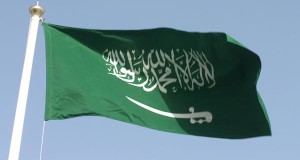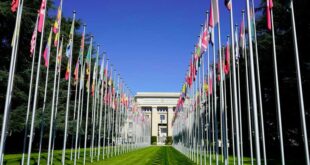The Iran deal, as judged by President Obama, is important to the US. But it represents a substantial challenge to the Saudis. It strengthens a country that is perceived by Riyadh as a source of an imminent threat to Saudi Arabia and the region. Riyadh was busy for some time in a complex project to build a unified regional front that would be able, through an intricate division of labor, to reduce the Iranian threat to the region. Now, with the soon to start tour of Jawad Zarif in the GCC carrying the usual reconciliatory statements, everyone one will listen politely, but will get back to the ongoing preparations once the meetings end.
Yet, the moment the deal was signed, a deep shift was already unleashed in whole Middle East.
Many members of this Saudi conceived Arab front found the Iran agreement persistently emerging in their strategic calculations. The deal is imposing itself on the radars of all regional capitals and compelling them to start a general revision of their priorities. Political solidarity goes only so far. At the end of the day, the word will be that of individual interests and views.
Turkey, for one example, is warming up to receive its share of the expected Iranian bonanza. Shortly after signing the deal, Turkish President Recep Tayyip Erdogan called his Iranian counterpart Hassan Rouhani to congratulate him. In a Mosque in Istanbul, Erdogan publicly welcomed the deal. “”This will positively affect our bilateral relations with Iran”, he said. Erdogan’s Finance Minister Mehmet Simsek said later that the “Iran unclear deal is great news for Turkish trade”.
Turkish companies are blowing the dust gathered over their old records of their favorite song “We are the Bridge”. In the past, they claimed everywhere in the Arab World, before the Arab spring, that Turkey is the proper trade bridge between the region and Europe. Now the old song is being translated quickly into Persian. Representatives of Turkish companies are lining up to go to Tehran carrying rosy daydreams and nicely written talking points about Islamic brotherhood. They have already rehearsed their speeches and may even remember some of the words from the times they used to say it in Arabic.
The irony is that until just few weeks ago, Ankara, in coordination with Doha, played a significant background role in lining potential recruits for the Sunni Front willing to fight the Iranian influence and took them to Riyadh (Hamas in Gaza and Islah in Yemen). The pressure expected to be placed on the Turkish government by its business sector will force Ankara to be more discrete in its back alley effort and potentially reduce this effort all together. This will create a void in the planned Saudi wall as Turkey will not be as a willing partner as it said it would be.
The same problem extends to another important Saudi ally: Pakistan. Islamabad was cautious from the beginning and chose to play a low profile role in the Arab-Iranian polarization. Yet, it played an important behind the scene role. But now, with the sanction on their way to disappear, Pakistani Petroleum Minister Shahid Khaqan Abbasi announced that work on the Pakistani part of the Iran-Pakistan pipeline is to start next October and take 30 month to be completed. “The nuclear agreement between Iran and the world will be beneficial to us. We will receive Iranian natural gas in 2017”, Abbasi said.
The US blocked the project for long time in the context of tightening the sanctions on Iran. The pipeline, called “The Peace Pipeline”, will end Pakistan’s chronic energy crisis. Pakistan will get 22 million cubic meter per day of Iranian natural gas.
Furthermore, Tehran is waving the carrot of settling the dispute about penalties’ clauses in the contract for delay of implementation which is $200 million per month. The pipeline should have been operational this year. But Islamabad said it could not manage to raise the funds to complete its portion of it.
In the Arab World, the Saudi mission will not be easier. Some Arab countries did not join the anti-Iran front from the beginning like Oman. Others did, with varying degrees of enthusiasm. These countries are now scratching their heads to find a way to get their share in trade deals with Iran in as minimum noise as possible. Logically, the first task for the Saudis now is to enforce discipline on the Arab camp, if there is such thing as Arab camp to start with. Yet, its leverage to do that is limited in many cases.
This Arab “camp” does not grant all its members equal weight in confronting the expected intensification of Iran’s interventionist policies. Some players are more important than others due to their link to a specific war front, geographical closeness or military capabilities. Jordan is not equal to Morocco for example. So, in fact, it boils down to a fewer than a handful of regional players.
The recent meeting between Hamas leader Khaled Meshal and King Salman in Riyadh in mid-July directed the spotlight to a major country in this few relevant handful: Egypt.
While Riyadh’s project of anti-Iran front is interring a new phase under the effect of signing the nuclear deal, the weight of Egypt will be relatively enhanced with the expected decrease of Turkish-Pakistani role. Yet, to enlist Cairo, Riyadh has to settle the choice offered by the Egyptian President Abdul Fatah Al Sissi: Either Egypt or the Muslim Brotherhood. As Hamas is a branch of the Brotherhood, the Salman-Meshal meeting was a message to Cairo that the Saudi King tilts towards the Brotherhood. The Qatari vision of this anti-Iran Front is taking a hold.
The meeting of Salman-Meshal was planned by Qatar. There is an assumption in many Arab capitals that Doha will provide biased advice to the Saudis and, as long as Riyadh follows some of its own partial national security advisors, it will step into a trap. Whatever the truth is, Egypt’s position should be squarely put, at best, in the category of the less enthusiast partners of the Kingdom.
It should be said that pushing Egyptian-Saudi relations to a crisis level is a very dangerous proposition for both sides at this delicate juncture. Yet Cairo does not seem ready to accept what it sees as strategic trap laid for both Saudi Arabia and Egypt, neither Riyadh seems to be ready to push aside the Qatari advice and accept the Egyptian stand.
It is still too early to measure the degree to which Turkey, Pakistan and other players will reduce their activist role in the mission of building the anti-Iran defensive wall the Saudis are trying to erect. Briefly, the varying distances of Arab countries, if measured by their stand on the Iranian nuclear deal and its consequences, threatens to increase tension within the Arab camp itself. Those who are leading the effort to fortify the Arab World and increase its immunity to Iranian intervention will demand more from those who are not in the front line. And those who may see that dealing with Iran is favorable to their own interests will feel uncomfortable with the direction of the Saudi wind in the post-Iran deal Middle East.
One of the rarely noticed consequences of the nuclear deal is that it made the zero sum games, very popular in the usual crude strategic thought, impossible to conceive. The zero sum game, in this case, should be understood in terms of its regional components and not in any general sense. Simply put, the situation in Syria or Iraq cannot be seen from a Saddamist point of view anymore.
On the general level, the Arabs do not try to interfere in Iranian affairs. It is the opposite. Furthermore, the Arabs do not represent a military threat to Iran. It is the opposite. And the Arabs do not have a revived historical dream of building a regional empire. It is the opposite.
The variable degrees of enthusiasm to play an active role against Iranian intervention will also lead to increasing sectarian incitement. The only way to bring hesitant partners in line is to increase domestic popular pressure on them to confront the “Shia” threat. This endeavors is indeed very risky on a longer term. More assistance to local Salafi groups, vehemently anti-Shia, in hesitant countries can lead to further regional destabilization and will certainly provide terrorism with additional potential recruits. Yet, the Saudis are like anybody else, they do not like to be put in a corner. And if they were, they will fight.
In any case, it is safe to say that the deal is causing a regional shift alright, even if this shift is not seen yet. The question now is: what are the potential scenarios that will emerge as the result of that shift?
 Geostrategic Media Political Commentary, Analysis, Security, Defense
Geostrategic Media Political Commentary, Analysis, Security, Defense





